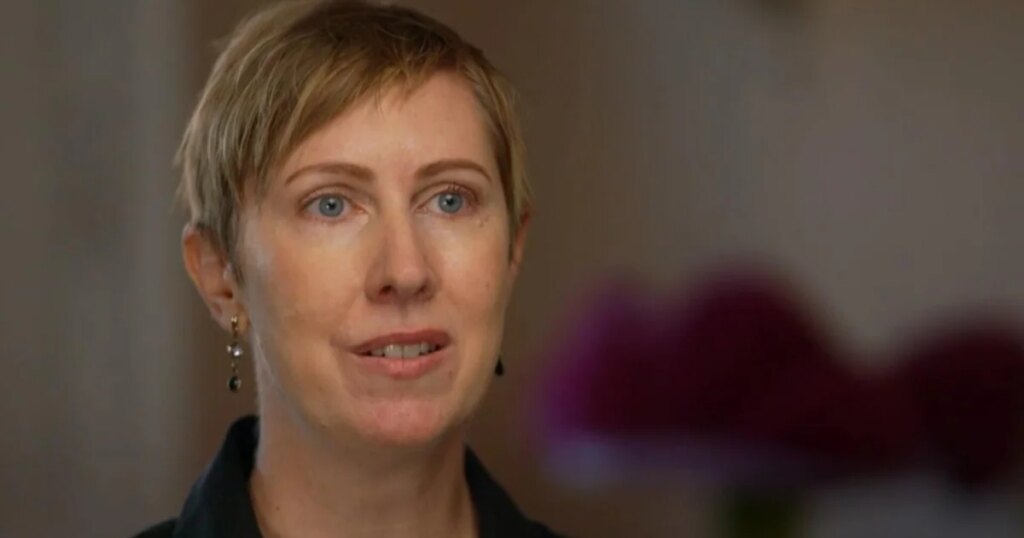In New York City, 41-year-old Emily Groveman is grappling with a challenging job market after nearly two years of unemployment. Once an impactful figure in hospitality and digital marketing, Groveman has faced a series of rejections that have left her financially strained. Her experience reflects a broader trend, with long-term unemployment rates climbing to levels not seen since the pandemic, prompting economists to express concerns about economic uncertainties affecting job opportunities.
| Article Subheadings |
|---|
| 1) The Background of Emily Groveman |
| 2) Current Job Market Trends |
| 3) Economic Factors Contributing to Unemployment |
| 4) Groveman’s Resilience in Hardship |
| 5) The Future Outlook of Job Seekers |
The Background of Emily Groveman
Originally from a thriving career in hospitality, Emily Groveman spent nearly a decade working closely with the NBA, where she managed behind-the-scenes operations for events, including party access, player meet-and-greets, and other significant engagements. Following this extensive experience, she transitioned into a leadership position at a digital marketing company, contributing her expertise for six years until she departed in 2023. Unfortunately, her job search has proven arduous. Groveman mentions her struggles to secure a new position, stating, “It’s been impossibly difficult,” reflecting not only her personal challenges but also a systemic issue prevalent across many job sectors.
Current Job Market Trends
The U.S. job market has recently experienced considerable turbulence, evidenced by rising figures in long-term unemployment. As of August 2023, nearly two million Americans fell into this category, having been out of work for at least 27 weeks—the highest rate since 2022. Labor Department data has revealed that the number of unemployed U.S. workers filing for benefits reached around 263,000 in early September, marking a notable rise since October 2021. This upward trend highlights the competitive nature of the job market as prospective employees, like Groveman, struggle to land opportunities. Groveman noted her own experience of enduring 13 interviews for a single position, showcasing the demanding vetting processes candidates now face.
Economic Factors Contributing to Unemployment
Labor economist Teresa Ghilarducci attributed the surging long-term unemployment rates to rising economic uncertainties fueled by political dynamics. She elaborated on how factors ranging from governmental shutdowns to tariffs imposed during the previous administration are influencing job stability. These conditions have left many businesses hesitant to commit to hiring new employees, creating a challenging environment for job seekers. The prospect of economic uncertainty looming over the job market has led Ghilarducci to warn that there is unlikely to be a substantial improvement anytime soon, making it imperative for aspiring job candidates to be persistent in their search.
Groveman’s Resilience in Hardship
As the pressures of unemployment persist, Groveman has been forced to make difficult financial decisions. Since March, she has been relying on her 401(k) savings, which she describes as a “necessary” but troubling situation. The mounting rejections have not only affected her emotionally but also economically, pushing her to rethink her lifestyle. After careful consideration, she has now decided to move to a Buddhist temple in Upstate New York, where she will trade her skills for free accommodation. This shift marks a significant change in her life direction, indicating her resilience in adapting to unforeseen circumstances.
The Future Outlook of Job Seekers
Looking ahead, the outlook for job seekers remains grim according to experts. The job market’s reluctance to improve signifies ongoing challenges for individuals searching for employment. The added competition among candidates is making it increasingly difficult to secure positions, leading many to express frustration similar to Groveman.
In the face of these challenges, Groveman encapsulates a growing sentiment: “If you have the ability to work, you should be able to,” emphasizing a societal expectation that hard work should yield rewards. However, her trials in the job market cast doubt on this notion, raising critical questions about the future of the American workforce amid evolving economic realities.
| No. | Key Points |
|---|---|
| 1 | Nearly two million people in the U.S. are facing long-term unemployment. |
| 2 | Economic uncertainty is a primary factor affecting job stability. |
| 3 | Groveman’s hardships underscore the challenges many job seekers experience. |
| 4 | Reports indicate rising unemployment benefits claims amidst economic insecurity. |
| 5 | Experts predict that the job market may not improve for the foreseeable future. |
Summary
The difficulties faced by Emily Groveman exemplify a broader crisis affecting many job seekers in today’s climate of economic uncertainty. Despite her extensive background in two significant industries, she finds herself without work, relying on savings and altering her living situation. The rising trend of long-term unemployment reflects the strains in the job market, as experts indicate a persistently challenging landscape for those seeking employment. As society confronts these realities, the importance of policies promoting job growth and economic stability becomes even more critical.
Frequently Asked Questions
Question: What are the primary causes of current unemployment trends?
Factors such as economic uncertainty, political dynamics like government shutdowns, and an increase in hiring hesitance among businesses are significantly impacting unemployment trends.
Question: How can individuals cope with long-term unemployment?
Many individuals adopt various strategies, including networking, leveraging online job platforms, and seeking temporary or volunteer opportunities to remain active and engaged within their fields.
Question: What is the outlook for the job market in the foreseeable future?
Experts predict that without significant changes in economic policy or a revival in hiring trends, the job market is unlikely to improve in the near term, making it essential for job seekers to remain proactive.
